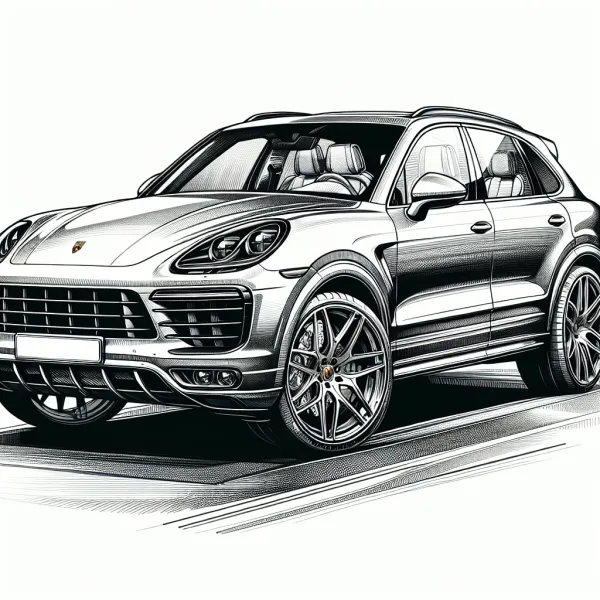Porsche Cayenne 3.0L Turbo: A Mechanic's Deep Dive into Ownership Costs and Reliability
Porsche Cayenne 3.0L Turbo: A Mechanic's Deep Dive into Ownership Costs and Reliability
The Porsche Cayenne 3.0L Turbo, particularly the models newer than 2020, represents a compelling blend of luxury, performance, and practicality. But before you're seduced by its sleek lines and powerful engine, let's delve into the realities of owning one, from a seasoned mechanic's perspective. This isn't a sales pitch; it's a realistic look at what you can expect.
Who is the Cayenne 3.0L Turbo for?
This SUV appeals to buyers who want a powerful, versatile vehicle with a premium feel. It's suitable for families needing space, individuals who enjoy spirited driving, and those who value the Porsche badge. However, it's crucial to understand that this luxury comes at a price, both upfront and in ongoing maintenance.
Real-World Fuel Consumption
The manufacturer's claimed fuel economy figures are often optimistic. In my experience, expect around 15-18 mpg in combined city and highway driving. Aggressive driving, towing, or consistently driving in stop-and-go traffic will significantly lower this figure. The all-wheel-drive system and the weight of the vehicle contribute to higher fuel consumption compared to lighter, smaller SUVs.
Common Problems (From a Mechanic's Perspective)
While generally well-engineered, the Cayenne 3.0L Turbo isn't immune to problems. Here are some recurring issues I've encountered:
- Air Suspension Issues: The air suspension is a common point of failure. Leaks, compressor malfunctions, and sensor problems are frequent culprits, leading to costly repairs. Regular inspection and preventative maintenance are key.
- Electrical Glitches: Porsche's sophisticated electronics can be a source of headaches. Issues with the infotainment system, various sensors, and even the lighting system aren't uncommon. Diagnosing these problems can be time-consuming and expensive.
- Turbocharger Problems: While not excessively frequent, turbocharger issues can be catastrophic and very expensive to fix. Regular maintenance, including oil changes with the correct oil specification, is vital to prolong their lifespan.
- Brake System: Given the vehicle's performance capabilities, the brake system experiences more wear and tear. Brake pad and rotor replacements are more frequent than in less powerful vehicles.
Maintenance Costs
Maintenance on a Porsche Cayenne 3.0L Turbo isn't cheap. Expect to pay a premium for parts and labor. Here's a rough estimate:
- Oil Change: $200-$300 (using Porsche-specified oil and filter)
- Brake Job (front and rear): $800-$1500
- Tire Replacement: $1000-$2000 (depending on tire choice)
- Air Suspension Repair: $1000-$5000 (depending on the extent of the damage)
Hidden Costs
Beyond the obvious, consider these hidden costs:
- Specialized Tools: Some repairs require specialized tools, which can increase the cost of independent repairs.
- Porsche-Specific Parts: Using only genuine Porsche parts is often recommended for optimal performance and longevity, which can be significantly more expensive than aftermarket parts.
- Correct Oil Specification: Using the wrong oil can void warranties and lead to premature engine wear.
Overall Reliability
Compared to some other luxury SUVs, the Porsche Cayenne 3.0L Turbo is relatively reliable, but it's not trouble-free. Proper maintenance is absolutely crucial to avoid major and costly repairs. Ignoring preventative maintenance will quickly lead to significant expenses.
Total Cost of Ownership
The total cost of ownership will vary depending on usage, driving style, and how well the vehicle is maintained. However, expect to spend significantly more than you would on a comparable non-luxury SUV. We're talking tens of thousands of dollars over a few years, including fuel, maintenance, repairs, and insurance.
Resale Value
Porsche Cayennes generally hold their value well, especially well-maintained examples. However, the resale value can be affected by the condition of the vehicle, service history, and overall market trends.
Tips for Prospective Buyers
If buying used, get a pre-purchase inspection from a trusted mechanic specializing in Porsches. Check the service history meticulously. Be wary of overly low prices, as they may indicate hidden problems.
Alternatives
If the cost of ownership is a major concern, consider alternatives like the BMW X5, Audi Q7, or Volvo XC90. These offer similar features and capabilities at a lower price point and potentially lower maintenance costs.
Conclusion
The Porsche Cayenne 3.0L Turbo is a capable and luxurious SUV, but it's not without its potential pitfalls. The high initial cost is only the beginning. Thorough research, diligent maintenance, and a realistic understanding of the potential repair costs are essential before taking the plunge. If you're prepared for the financial commitment, it can be a rewarding ownership experience. However, for many, the alternatives offer a more financially sensible route to luxury SUV ownership.
